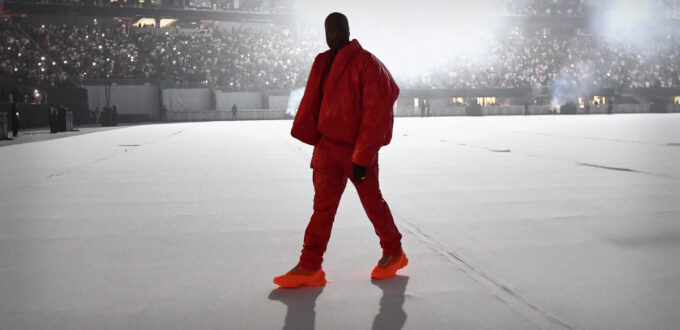Ye is a nay, but that’s just for today.
Okay, now in English: Kanye West told the world on Instagram that he is apparently one of the few celebrities on earth who is absolutely, positively not getting into NFTs, or non-fungible tokens.
Or maybe he is.
‘Ask Me Later’
“My focus is building real products in the real world,” the rapper and record producer declared in a handwritten note. “Real food, Real Clothes, Real shelter. Do no ask me to a do a f*cking NFT.”
The note is signed “Ye,” West’s name as of last year, and comes with a curious postscript: “Ask me later.”
All righty, then. While Kayne is making up his mind about NFTs, let’s look at some other celebrities who got into NFTs ASAP.
Unlike cryptocurrencies, NFT can be digital art, experience, collectible, and many other things. And they can bring in a lot of the do-rei-me.
John Lennon’s son, Julian, is going to sell iconic pieces of memorabilia from his father and the Beatles as NFTs
These items include the cape from the movie Help!, the coat John Lennon wore in the Magical Mystery Tour film and Paul McCartney’s handwritten notes from writing “Hey Jude,” which experts think could for $60,000. Each item has an audio narration from Julian himself.
Then there’s former Twitter (TWTR) – Get Twitter, Inc. Report CEO Jack Dorsey, who sold his first tweet as an NFT last year for more than $2.9 million.
‘A Catastrophic Failure’
Dorsey’s first tweet – “just setting up my twttr” – on March 21, 2006, was sold to investor Sina Estavi with a Twitter handle @sinaEstavi.
And Golden State Warriors’ Steph Curry personally released a collection of 2,974 NFTs to celebrate the record number of 3-pointers.
But NFT’s don’t always rack up the big numbers.
Take the case of actor and former professional wrestler John Cena, who in September labeled the paltry sales of his World Wrestling Entertainment memorabilia as “a catastrophic failure.”
There can also be legal entanglements.
Kim Kardashian, reality TV star and Ye’s future ex-wife, was sued along with boxing legend Floyd Mayweather Jr. for allegedly misleading investors in their promotion of a cryptocurrency token.
The law firm Latham & Watkins noted in a commentary last year that “even those who hold a copyright in the NFT and an underlying work are not completely insulated from legal liability, particularly at the state level.”
“While protections under copyright law and the right of publicity overlap, they are not coextensive,” the firm said. “Thus, NFT minters should pay close attention to the ways in which their work can expose them to liability for violating the right of publicity.”
‘Extreme Market Volatility’
Filmmaker Quentin Tarantino got served with a lawsuit over his plans to sell NFTs based on the screenplay for his 1994 movie Pulp Fiction.
This promoted the film’s production company, Miramax, to get medieval on his butt and accuse him of copyright infringement, breach of contract, trademark infringement and unfair competition.
Nevertheless, Tarantino was determined to have his Royale with cheese and eat it, too, and the first NFT was sold for $1.1 million.
However, a notice appeared on the Twitter feed “Tarantino NFTs” last week announcing that “in light of extreme market volatility, we’ve decided to postpone the remainder of the auction to put the needs of our community first.”
“We know that these exclusive collector’s items will be valuable for generations to come,” Tarantino NFTs tweeted. “Instead of adding to the volatility, we will wait for the right market conditions to ensure the integrity and fair market value for our community and creators.”
In response, a poster called Cryptomaniac tweeted “what this tells me is that the bids that were received were not up to the expectations.”

No Comments Yet